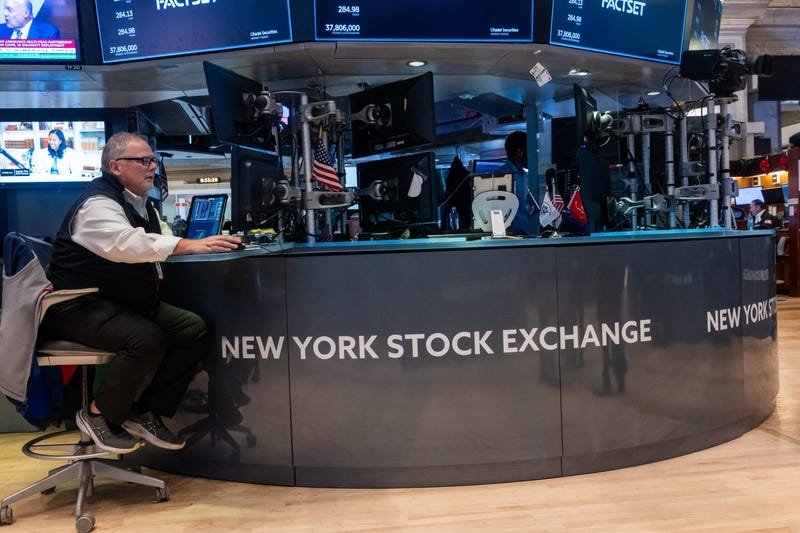
Stocks slumped in morning trading on Wall Street Tuesday as trade tensions escalate again with China.
The S&P 500 fell 1%. The Dow Jones Industrial Average slipped 383 points, or 0.8%, as of 9:57 a.m. Eastern time. The Nasdaq composite shed 1.5%.
The slide marks another sharp twist for markets over the last few days. Wall Street tumbled on Friday for its worst day since April and bounced back on Monday for its best day since May. The swings were prompted by shifting trade sentiment between the U.S. and China.
"This harkens back to the first Trump administration where you saw that trade war with China go for over two years," says CBS News Moneywatch correspondent Kelly O'Grady. "So I think investors have a little PTSD, think that this might last longer than expected. However, the president on Sunday, he said, 'look, don't worry about China.' You did see the market rebound some yesterday. I think the takeaway here is Beijing, that relationship, it's really tenuous."
The latest dip follows China’s Commerce Ministry banning dealings by Chinese companies with five subsidiaries of South Korean shipbuilder Hanwha Ocean, swiping at President Donald Trump’s efforts to rebuild the industry in America. European markets were lower and Asian markets fell.
The ongoing trade war between the U.S. and the world has been an unpredictable weight on the market. The trade conflict between the U.S. and China is potentially the most economically consequential, owing to those nations’ positions as the two largest economies in the world.
"If you're buying from certain countries that agree to trade deals with the US, you'll get a reprieve," O'Grady adds. "So for example, the UK tariff that's capped at 10%, Japan and the EU are at 15%. US officials they say the tariffs aim to strengthen domestic manufacturing, but these higher lumber costs, they could trickle down to new home prices. And then of course anyone looking to furnish their homes could feel the impact too, especially if you're looking for those cheaper options from China and India."
International shipping and shipbuilding have become a major source of friction between Washington and Beijing, with each side imposing new port fees on each others’ vessels. Those fees went into effect on Tuesday.
The U.S. economy has so far dodged any major impact from the broad and constantly shifting U.S. tariff policy. That could change if nations fall back into a cycle of retaliatory tariffs and companies pass along more of the higher costs to consumers.
The U.S. government shutdown has put a halt to the usual economic updates on inflation, consumer spending and job growth. Wall Street is looking toward the latest round of company earnings and forecasts to get a better sense of the broader economic picture.
JPMorgan Chase slipped 3.8%, despite beating Wall Street's profit forecasts for its latest quarter. Wells Fargo rose 3.5% after beating analysts' forecasts.
Health care giant Johnson & Johnson fell 1.8% after announcing that it will separate its orthopedics business into a standalone company.
Treasury yields held relatively steady. The yield on the yield on the 10-year Treasury fell to 4.04% from 4.05% late Friday. Bond markets were closed in the U.S. on Monday for a holiday.
